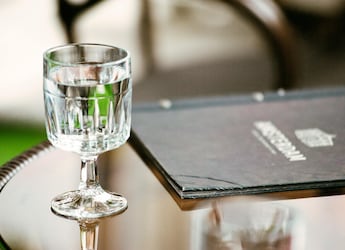Some may question why an Air Force general needs one personal chef, let alone a staff of three, but Tech. Sgt. Jennifer Medeiros is quick to defend why her work, cooking for the second-highest-ranking officer in the U.S. military, is important: "Food is a common ground for anyone in the world," the chef says. "You can't discuss multimillion-dollar affairs over Hot Pockets."
Advertisement
Advertisement
Advertisement
Advertisement
For the latest food news, health tips and recipes, like us on Facebook or follow us on Twitter and YouTube.
Advertisement
